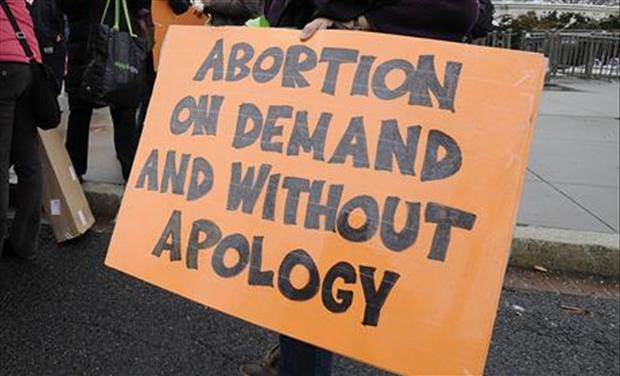If you follow the undertakings of pro-abortion organizations, you have probably witnessed their massive push to “de-stigmatize” abortion. The projects gained momentum when Emily Letts released the bizarre video of her purported abortion. Her so-called “bravery” fired up the abortion movement and led to the creation of campaigns to depict abortion as a positive, simply awesome choice.
Because at face-value the abortion movement is despicable, it relies on semantic ploys to keep a positive facade. The impetus behind their movement is to constantly come up with creative ways to keep the abortion industry in business, and all the while ignoring the constant technological advances that allow us to further confirm that the preborn child is a living human being.
There’s no telling how long this new de-stigmatizing trend will last, but one thing is for certain: it’s not going very well. First, there’s the sheer difference in numbers between “positive” abortion stories and those of women who regret their choice. Testimonials (video, written, audio) from women who regret their abortions and want to prevent other women from the same heartbreak abound. They have been collected and published for years, a sobering witness to the pain few women fully comprehend until it’s too late. The novelty and shoddy success of the positive abortion story campaign could indicate its very weak foundation.
These projects include “Not Alone,” a campaign that encourages women to upload videos about their positive abortion experiences. If you peruse the site, you’ll see that the same videos are placed repeatedly all over the home page, giving the appearance that there are a lot of them. But there are not. On the other hand, visit any of a large number of testimonial websites from women who regret their abortions, and you’ll find thousands. Abort73 has been collecting women’s testimonies for years. Silent No More has thousands of written and video testimonials of women who believe that telling their stories of heartbreak and regret is imperative.
Former abortion mill owner and post-abortive mother Carol Everett refers to two groups of post-abortive women — that is, those who recognize and mourn their baby’s death, and those who repress the reality of abortion. In her business she witnessed countless women experiencing the immediate aftermath of their abortion decisions. She says that in the recovery room after abortion, one group of women instantly reacts by acknowledging that they killed their baby. Of the latter group, she says:
But the second reaction is: I am hungry, you kept me in here for four hours and you told me I’d only be here for two; let me out of here. Now that woman is doing what I did. She’s running from her abortion… They say now it’s an average of five years before people actually deal with the fact that, yes, they did kill their baby. And yes, they do have to deal with that… And how difficult it is for all these women because, you see, I believe that every woman, even if she’s not physically harmed, is harmed by abortion.
Research supports Everett’s personal experience and witness. Sarah Terzo of the website ClinicQuotes pulished an excerpt from The Postabortion Review, which stated in 1994 that a large majority of women who eventually experience the negative impact of their abortion choice acknowledge that they spent time denying the impact of the event:
Between 60 and 70% of women who eventually confronted negative feelings about their abortions admitted that there was a period of time during which they would have denied to others, and themselves, any regrets or negative feelings. On average, this period of denial was about 5 years, with a low of one month and a high of 20 years.
The de-stigmatization trend may end up backfiring on the movement that has for so long claimed to be the non-radical player in the abortion debate. Innocent terms like “pro-choice” have been used as a stand-in for more accurate epithets like “pro-killing,” and it seems that in the push to de-stigmatize murder, supporters have turned to phrases that betray their true beliefs to a degree with which mainstream America will never be comfortable:
Abortion on demand and without apology. (Some preface abortion with “free.”)
Sorry, not sorry. (Also: Not Easy, Not Sorry.)
The only good baby is a dead baby.
Kill the shrimps.
Abortion is definitely associated with stigma. It’s a stigma that a few positive abortion stories won’t eradicate, because the thousands upon thousands of women and children who have been harmed by abortion are literal testimonies to the reason the stigma is. Abortion brings heartbreak, death, and a host of other tragic consequences. This is surely not to say that a woman cannot start fresh or heal after an abortion tragedy. But to propagate the myth that abortion is good for women is a devastating blow to the vast swath of post-abortive women who do feel marred by their abortion choice, and for very valid reasons. Trying to de-stigmatize abortion is, without a doubt, an excellent way to keep the abortion industry’s coffers padded. But is it actually good for women?







